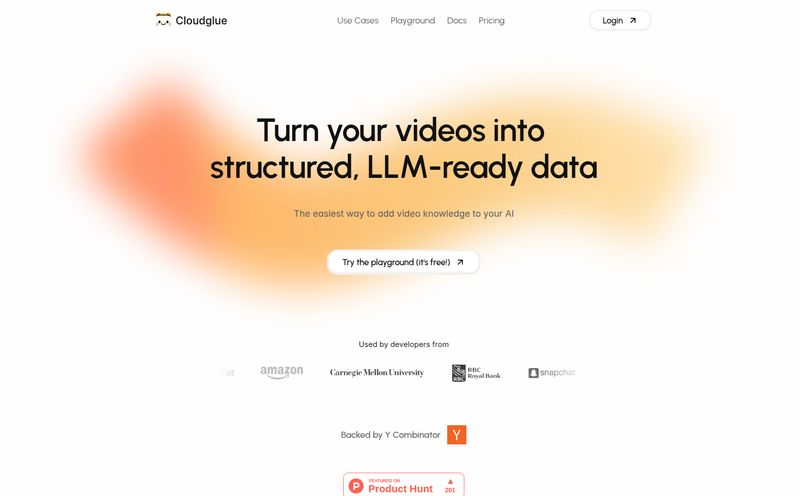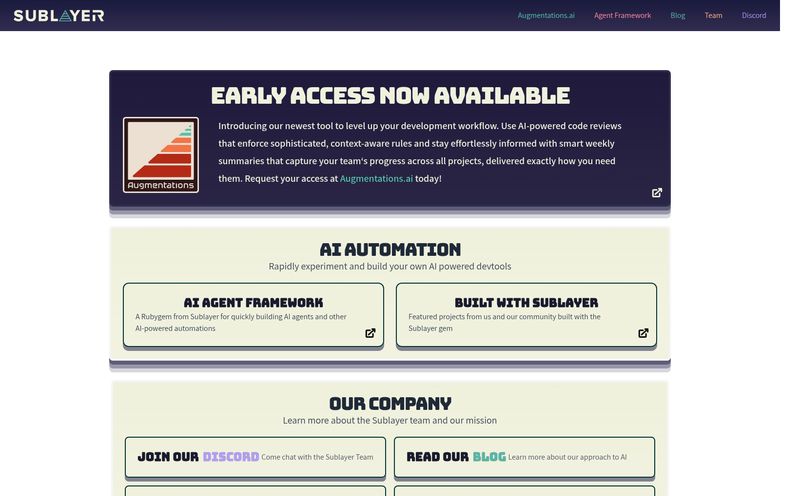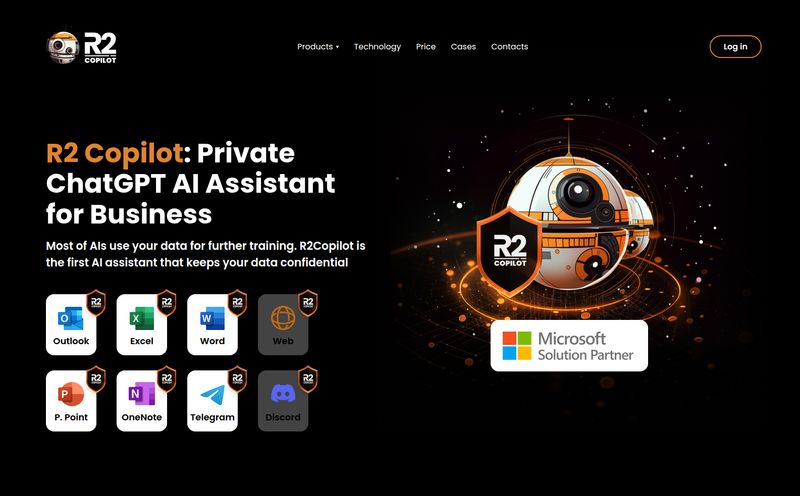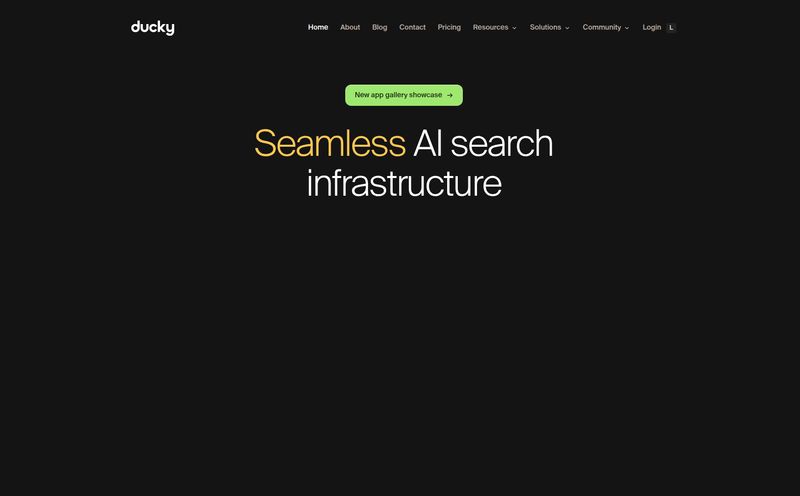We've all been there. Stuck in a customer service chat loop with an AI that has all the personality of a brick. You ask a simple question, it gives you a canned answer from a 2012 help document, and you end up just typing "speak to a human" over and over, your blood pressure slowly rising. It's frustrating. It feels... cold. Impersonal.
For years, the race in AI has been about power. Bigger models, more data, faster processing. But what if the goal wasn't just to be smarter, but to be more... human? I stumbled across a South Korean startup, TUNiB, whose entire mission seems to be built around this very idea. Their tagline hit me right away: "We create conversational A.I. that people emotionally engage with."
Emotionally? Engage? With a chatbot? That’s a bold claim. But the more I looked into what they’re building, the more I realized they might actually be onto something big. This isn't just another company churning out generic AI tools. This feels different.
So, What Exactly is TUNiB?
At its core, TUNiB is an AI technology company, but they don't lead with jargon. They lead with their values: Humanity, Technology, and Ethics. Now, I know what you’re thinking—every company has a values page. But with TUNiB, it seems less like a corporate mandate and more like a genuine design principle. They’re not just building AI; they're trying to build what they call a “responsible AI ecosystem.”
This isn't just about making chatbots that are less annoying. It's about creating AI interactions that are safe, empathetic, and actually helpful. They’re the brains behind services like 'DearMate,' a social platform where humans and AI can interact, and they’ve got a serious portfolio of tools that back up their ambitious vision.
Beyond the Buzzwords: TUNiB's Core Services
Alright, let's get into the nitty-gritty. What are they actually selling? Their services are a fascinating mix of foundational models and very specific, practical applications.
The Rise of the sLLMs (Small Language Models)
In a world dominated by giants like GPT-4, TUNiB is making a big bet on sLLMs, or Small Language Models. Think of it like this: a massive model like GPT-4 is a general practitioner who knows a little bit about everything. An sLLM is a specialist. It’s smaller, trained on a more specific dataset, and as a result, it’s often faster, cheaper, and more accurate for its specific job. It's a trend many of us in the industry, including folks over at Andreessen Horowitz, have been watching closely.
TUNiB offers a few flavors of this, including Polyglot, a Korean-specific sLLM, and Cheetah, a lightweight model designed for multi-persona chatbots. More importantly, they build custom, domain-specific sLLMs. Imagine an AI for your company that only knows your products, your customer history, and your brand voice. That’s the power of going small.
The Many Faces of AI: Multi-Persona Chatbots
This is where things get really interesting for me. TUNiB offers “millions of pre-built persona chatbots.” This isn't about creating one single, bland bot. It’s about creating a cast of characters. It’s the difference between having one monotone spokesperson for your brand and having a whole team of engaging personalities that can connect with different types of customers.
One user might want a chipper, helpful guide. Another might prefer a straightforward, no-nonsense expert. With a multi-persona approach, you can deliver that tailored experience. It’s a simple concept on the surface, but the implications for user engagement are massive. No more one-size-fits-all robots.
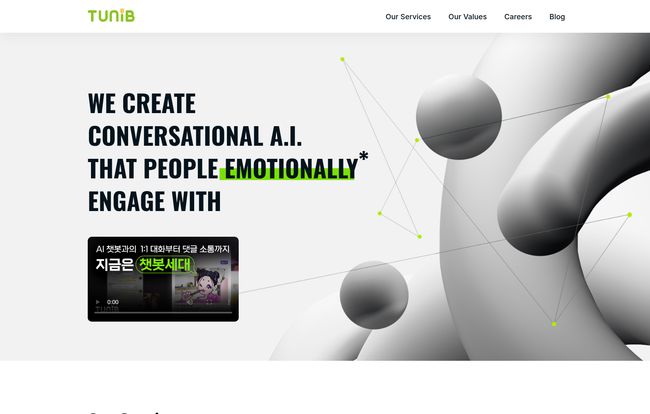
Visit TUNiB
The Unsung Hero: TUNiBridge NLP APIs
If the chatbots are the actors on stage, the NLP APIs are the entire backstage crew making the show run smoothly. TUNiB provides a suite of APIs under the name TUNiBridge, which lets developers plug TUNiB's brainpower into their own applications. And the tools in this kit are telling.
Sure, they have the standard stuff like Text Analytics and Text-to-Speech. But two of them jumped out at me immediately: Safety Check and De-identification. This is their ethics value in action. The Safety Check API protects platforms from generated hate speech and personal information breaches. The De-identification API helps protect user privacy. In an age where AI-generated content is the new wild west, these tools are not just nice to have; they are absolutley necessary.
The Elephant in the Room: AI Ethics and Safety
I can't stress this enough: TUNiB's focus on safety is a huge differentiator. We’ve all seen AI go wrong. From biased outputs to generating harmful content, the risks are real. Many companies are trying to bolt on safety features after the fact, like adding a seatbelt to a car that's already been built.
TUNiB seems to be building the car with the airbags, crumple zones, and anti-lock brakes designed in from the very beginning. Their “AI ethics guardrail solutions” are front and center. It’s no wonder they’ve earned the trust of major players like KRAFTON and NEXON—gaming companies where community safety and interaction are paramount. They can't afford to have a toxic AI running rampant.
Let's Talk Brass Tacks: How Much Does TUNiB Cost?
Okay, the big question. What’s the price tag? Well, you won't find a neat little pricing table on their website. And honestly, that makes sense.
TUNiB isn't selling a simple, off-the-shelf plugin. They're offering customized, enterprise-grade solutions. The cost for a massive deployment for a company like LG U+ is going to be wildly different from a smaller business needing a single, domain-specific chatbot. This is a "contact us for a quote" situation, which is standard for this level of service. It also implies that you'll likely need some technical know-how on your team to integrate their APIs and get everything running. This isn't for the casual blogger looking to add a chatbot to their WordPress site.
My Honest Take on TUNiB
So, after digging in, what's my verdict? I’m genuinely impressed. In my experience, most AI companies are in a frantic race for scale and capability. TUNiB is playing a different game—a longer, more considered one.
Their focus on emotional engagement and the multi-persona concept is not just a gimmick; it’s a smart recognition of what’s been missing from human-computer interaction for decades. Their public commitment to ethics isn't just talk; it's baked directly into their product offering with tools like Safety Check. That builds trust.
Of course, it’s not a perfect solution for everyone. The lack of public pricing and the apparent need for technical expertise means it's aimed squarely at businesses with development resources. But for those companies? I think TUNiB is a name we’re going to be hearing a lot more of. They’re building AI that you don’t just use, but that you might actually... like.
Frequently Asked Questions about TUNiB
- What is TUNiB in simple terms?
- TUNiB is an AI company that specializes in creating conversational AI that feels more human and emotionally engaging. They focus heavily on AI ethics and safety, providing tools like sLLMs, multi-persona chatbots, and safety APIs.
- What makes TUNiB different from other AI companies?
- Their main differentiators are a core focus on 'emotional engagement' rather than just function, their unique multi-persona chatbot technology, and a very strong, product-based commitment to AI ethics and safety guardrails.
- Who is TUNiB for?
- TUNiB is primarily for businesses, developers, and enterprises that need customized, safe, and sophisticated conversational AI solutions. It's not really a tool for individual or casual users due to its custom nature.
- What is an sLLM (Small Language Model)?
- An sLLM is a more compact and specialized version of a large language model (like GPT-4). It's trained on a narrower set of data to be highly efficient, fast, and accurate for specific tasks, often making it more cost-effective.
- Is TUNiB's AI only for Korean?
- While they have a specific Korean sLLM called Polyglot, many of their services, like the Cheetah model for chatbots and their various NLP APIs, are designed for broader applications and languages. You'd have to check with them for specifics on your language needs.
- How can I find out TUNiB's pricing?
- You must contact TUNiB directly through their website for a quote. Their pricing is customized based on the scale of deployment and the specific solutions you need.
Final Thoughts
Remember that frustrating chatbot I mentioned at the start? The one that felt like talking to a vending machine? Companies like TUNiB are actively working to make that experience a thing of the past. The future of AI isn't just about passing the Turing test; it's about passing the empathy test. It's about creating technology that works with us, understands us, and maybe, just maybe, connects with us on an emotional level. And from what I've seen, TUNiB is on teh right track.
